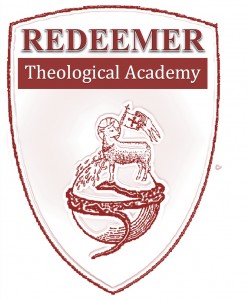The following post is a reprint of the pamphlet “What About the Jehovah’s Witnesses?” from the ” What About?” series of 27 pamphlets, written by former Synod President Rev. Dr. A.L. Barry, that address doctrinal topics, moral issues and concerns in the church to help Christians grow in their understanding of these important questions.
Note: permission is granted to copy any part of this series, as long as there is no sale of the copied material and no change in content.
What About the Jehovah’s Witnesses?
Written by A. L. Barry, President, The Lutheran Church—Missouri Synod
Perhaps you have answered a knock at your door and found two people wanting to talk to you about various social concerns, or at least they say they do. From there they hand you material printed by the “Watchtower.” As you speak to them, you find out that they are Jehovah’s Witnesses. The purpose of this pamphlet is to help you understand who the Jehovah’s Witnesses are and what they stand for.
Who are the Jehovah’s Witnesses?
The Jehovah’s Witnesses are persons who are members of the organization known as the Watchtower Bible and Tract Society, headquartered in Brooklyn, New York. It is very important for Christians to understand that the Watchtower Society is un-Christian. In fact, it is decidedly anti-Christian. The Jehovah’s Witnesses are definitely not merely a different Christian denomination.
How did the Jehovah’s Witnesses begin and grow?
The founding father of the Jehovah’s Witnesses was Charles Taize Russell (1852—1916). Russell came to the conclusion that Christianity was not the correct way to understand the Bible. He made contact with groups (known as Adventists) who emphasized the immediate return of Christ. Russell began a series of Bible studies and started to gather followers. Russell agreed with the Adventists’ predictions that Christ would return during 1873—1874. When that did not happen, Russell predicted more times for Jesus’ return-all of which proved to be false, of course.
Eventually, in 1884, Russell officially incorporated the “Zion’s Watchtower Bible and Tract Society.” Twelve years later, the word “Zion” was dropped. In 1908, Russell moved his organization to Brooklyn, New York. Toward the end of his life, Russell lost considerable respect among his followers because of a number of slander cases he lost in court.
After Russell’s death in 1916, leadership of the Watchtower Society passed to Judge Joseph Franklin Rutherford. Rutherford was largely responsible for the rapid growth of the Watchtower Society. He spread the Jehovah’s Witnesses’ message via phonograph machines, which he used to play his recorded sermons. These sermons were more often than not harsh attacks against denominational Christianity, particularly the Roman Catholic Church, with vivid descriptions of the judgment to come against anyone who did not embrace Jehovah’s Witnesses’ views.
After 1944, the Watchtower Society no longer used media but instead emphasized personal visits, marked by aggressive techniques to gain entry into homes in order to share their message. This has been the approach of the Watchtower Society since that time. Rutherford increased his control over the Watchtower Society and devised what he termed the “theocratically controlled” organization of the Jehovah’s Witnesses movement. In 1931, the name “Jehovah’s Witnesses” was officially adopted to distinguish the followers of Rutherford from those who had left to form their own organizations.
When Rutherford died in 1942, Nathan Knorr took over (1905—1977). Knorr worked tirelessly to create a better image of the Jehovah’s Witnesses in the public mind. Knorr spearheaded a massive printing effort, which continues to this day. The two magazines widely distributed in multiple languages that the Jehovah’s Witnesses are most known for are Awake! and The Watchtower.
Under Knorr’s leadership, the Jehovah’s Witnesses produced their own Bible translation, The New World Translation. From 129,000 members in 1942, the Jehovah’s Witnesses grew to 410,000 members in the United States alone by 1971. They number nearly 900,000 members in the United States alone, with about 3.5 million members in 200 different countries.
What is the key emphasis of Watchtower teaching?
The Jehovah’s Witnesses’ movement’s primary concern is the end-time (eschatological) renewal of human society. They believe that Jesus Christ will return to establish a new kingdom, which they call a “theocracy,” in which Jehovah God will bring total tranquility to the earth. They believe this utopia will come only after the Battle of Armageddon, in which the present world order will be destroyed. The Jehovah’s Witnesses view all earthly institutions, organizations and governments as evil. They believe that only the Watchtower Society is capable of speaking truthfully about God in the world today.
What do the Jehovah’s Witnesses believe about Jesus?
The Jehovah’s Witnesses movement is surprisingly similar to the ancient heresy known as Arianism. The Christian church rejected this false teaching about Jesus. The Jehovah’s Witnesses believe that Jesus is “a” god, but not the eternal Son of God, the second person of the Holy Trinity. They believe there was a time when He actually was created by Jehovah God. They do not believe Jesus is true God, as does historic Christianity. They do not believe the Holy Spirit is God, but only an impersonal force. Thus, they do not believe in the Holy Trinity.
The Jehovah’s Witnesses’ Bible, The New World Translation, goes out of its way to mistranslate various verses of the Greek New Testament. An example of this type of mistranslation is found in John 1:1. The Greek text says, “In the beginning was the Word and the Word was with God and the Word was God.” The New World Translation translates the Greek this way: “In the beginning was the Word and the Word was with God and the Word was a god.” You can see how through such deceptive translating, the Jehovah’s Witnesses attempt to mislead people.
How do Jehovah’s Witnesses believe that people are saved?
Based on misinterpretations of passages from the Book of Revelation, the Watchtower Society believes that Jehovah God extends salvation to two different groups of people. First, there are the 144,000 who shall inhabit heaven. The rest of those saved will inhabit earth in the new kingdom that Christ will establish when he returns after the Battle of Armageddon. They believe that the only persons who will be numbered among the 144,000 are those who have adequately met specific requirements and have lived well enough in imitation of Christ.
For Jehovah’s Witnesses, salvation is not an accomplished fact by Jesus Christ, given as a free gift, but only something that is earned by doing good works. Chief of these works is aggressive personal visitation of non-members. This explains in large part why the Jehovah’s Witnesses are so zealous for personal visitation.
What are some other distinct Jehovah’s Witnesses’ beliefs and practices?
Many people hear about Jehovah’s Witnesses when they learn that a Jehovah’s Witness has refused a blood transfusion. The Watchtower Society forbids members from receiving blood transfusions because they believe this is a form of “eating blood,” which was forbidden to the Old Testament people of God.
Jehovah’s Witnesses also believe it is wrong to serve in the military, to vote, to salute the national flag, or to express any sort of citizenship in this world, since they believe the world will be destroyed and replaced by Christ’s kingdom.
Jehovah’s Witnesses do not observe Christmas, Good Friday, Easter or family birthdays, believing these celebrations to be pagan festivities. Most Jehovah’s Witnesses also avoid dancing, movie-going and watching television.
The average Jehovah’s Witness makes personal visits on people in their homes for an average of ten hours per month. There are some 900,000 Jehovah’s Witnesses in this country making calls like this. Those Witnesses who are “pioneers” devote 100 hours a month to this work of calling on homes. Since their record of calls is the only record kept of their membership, this work is vital for them.
How can Christians reach out to Jehovah’s Witnesses?
We need to recognize that Jehovah’s Witnesses are besieged by the Watchtower Society with literature that trains them in how to share their false theology and to contradict Biblical truth. They immediately have many Christians at a disadvantage, since they are well prepared and ready to speak to you, while their visit takes you by surprise.
Entering into an extended and detailed discussion with Jehovah’s Witnesses is best done by those Christians who have carefully prepared to do so. It is possible, however, for all Christians to give a clear and simple witness to their faith when speaking with a Jehovah’s Witness. It is important not to permit them to sidetrack you when you speak to them.
While every conversation is definitely going to be unique, here are some things that need to be said to Jehovah’s Witnesses: “I trust in Jesus, not in an organization (John 3:16). I know I have eternal life (1 John 5:13) and that I will be saved by Jesus forever. I am not saved by what I do. I do good works out of love for God (Ephesians 2:8—10). I will pray that you too come to know the peace and joy I have been given in Christ Jesus my Lord (Romans 5:1).”
You may also be able to plant a seed of doubt in the mind of a Jehovah’s Witness about the Watchtower Society. Invite them to your church and invite them to speak to your pastor. Urge them to read the Bible, and not to rely on their Watchtower Society materials. Challenge them to lay these materials aside for one week or one month and read only the Bible.
After you have shared the Word with them, pray for them, asking God the Holy Spirit to work faith in their hearts, so that like Thomas, they may look to Jesus and say, “My Lord and my God” (John 20:28).
For further study: An excellent short book on the Jehovah’s Witnesses is How to Respond: The Jehovah’s Witnesses. It is available from Concordia Publishing House.
 [audio:https://redeemertheologicalacademy.org/wp-content/uploads/2013/01/The-Purpose-of-the-Written-Word.mp3|titles=The-Purpose-of-the-Written-Word]
[audio:https://redeemertheologicalacademy.org/wp-content/uploads/2013/01/The-Purpose-of-the-Written-Word.mp3|titles=The-Purpose-of-the-Written-Word]